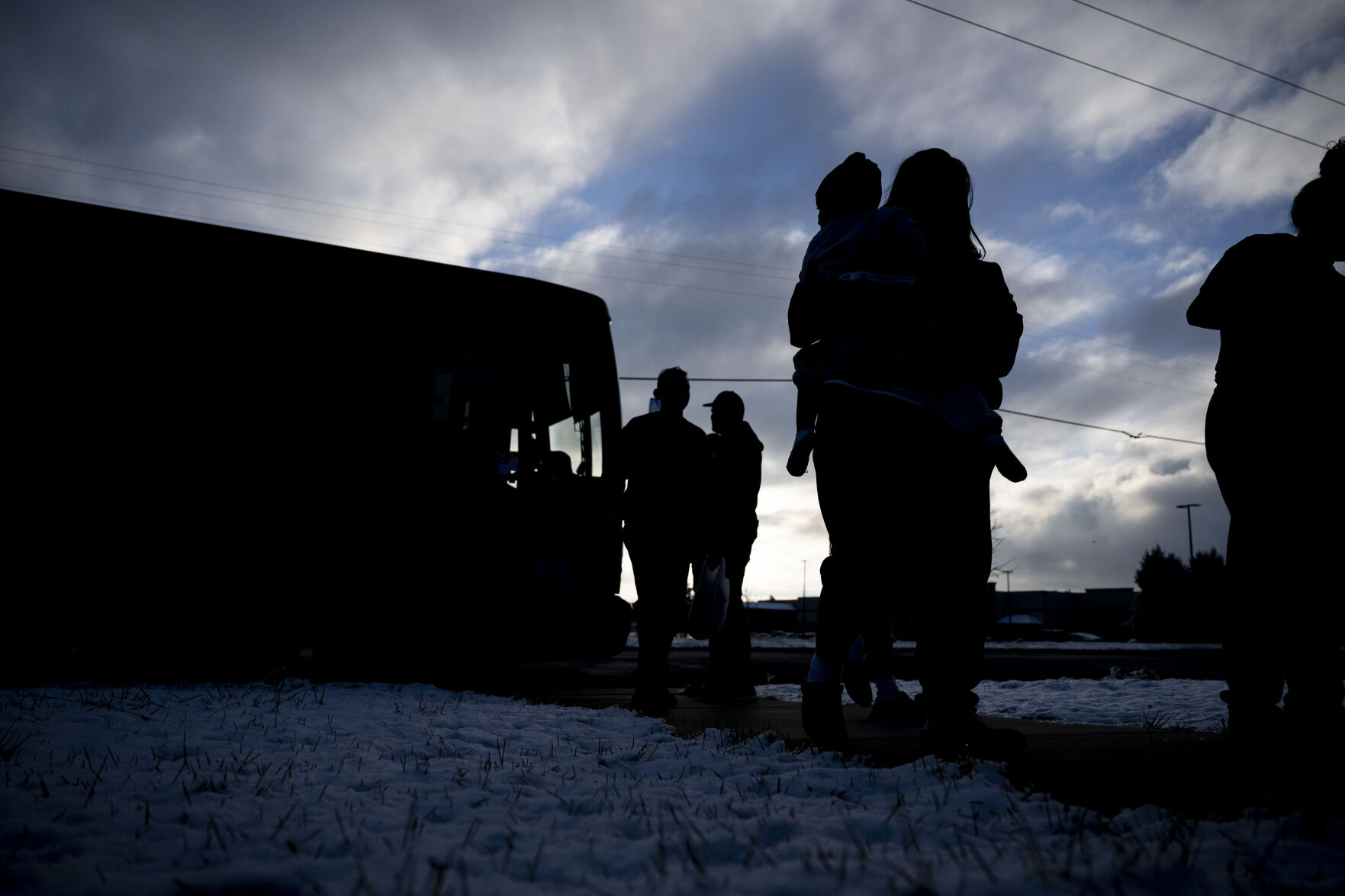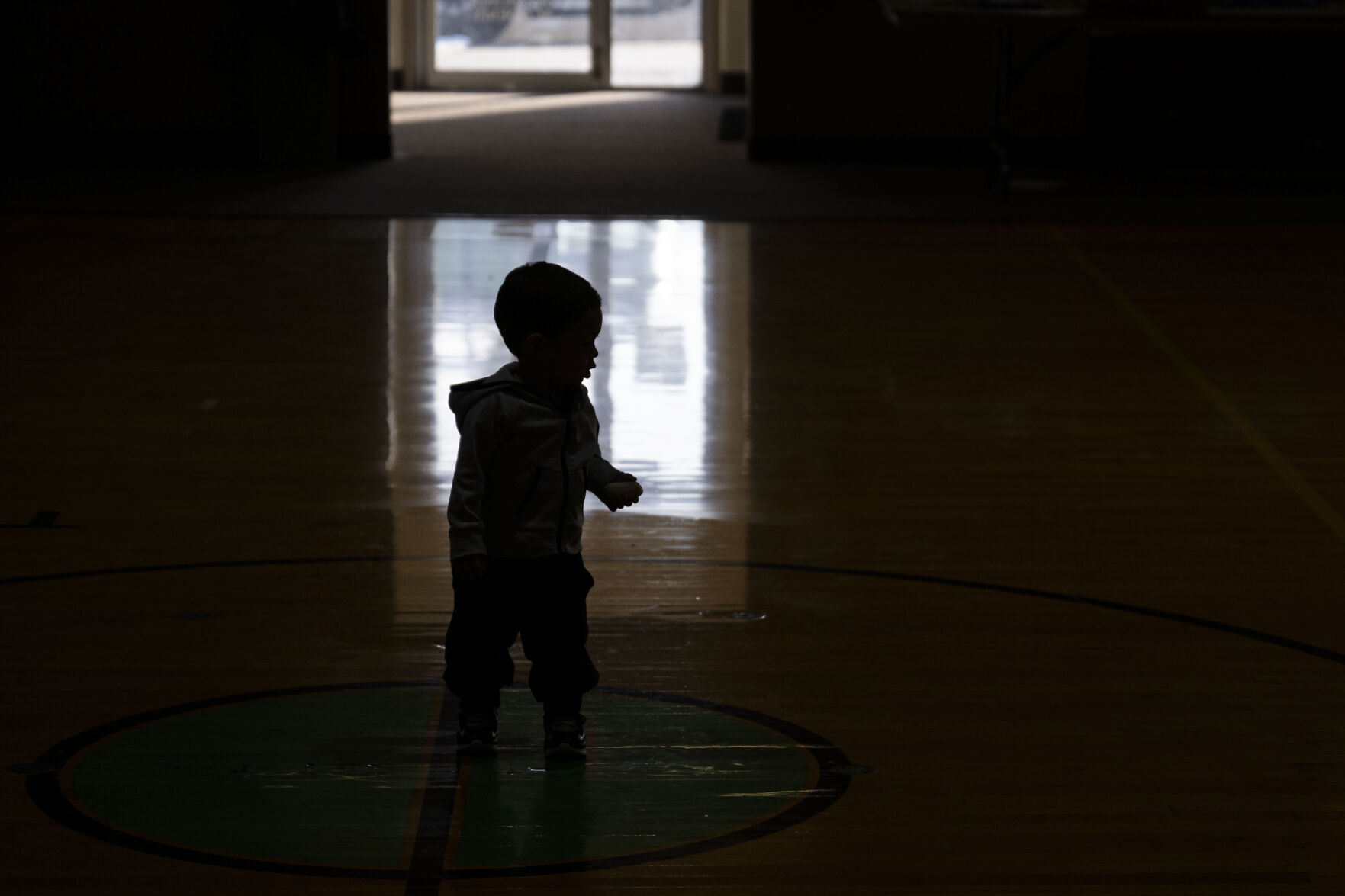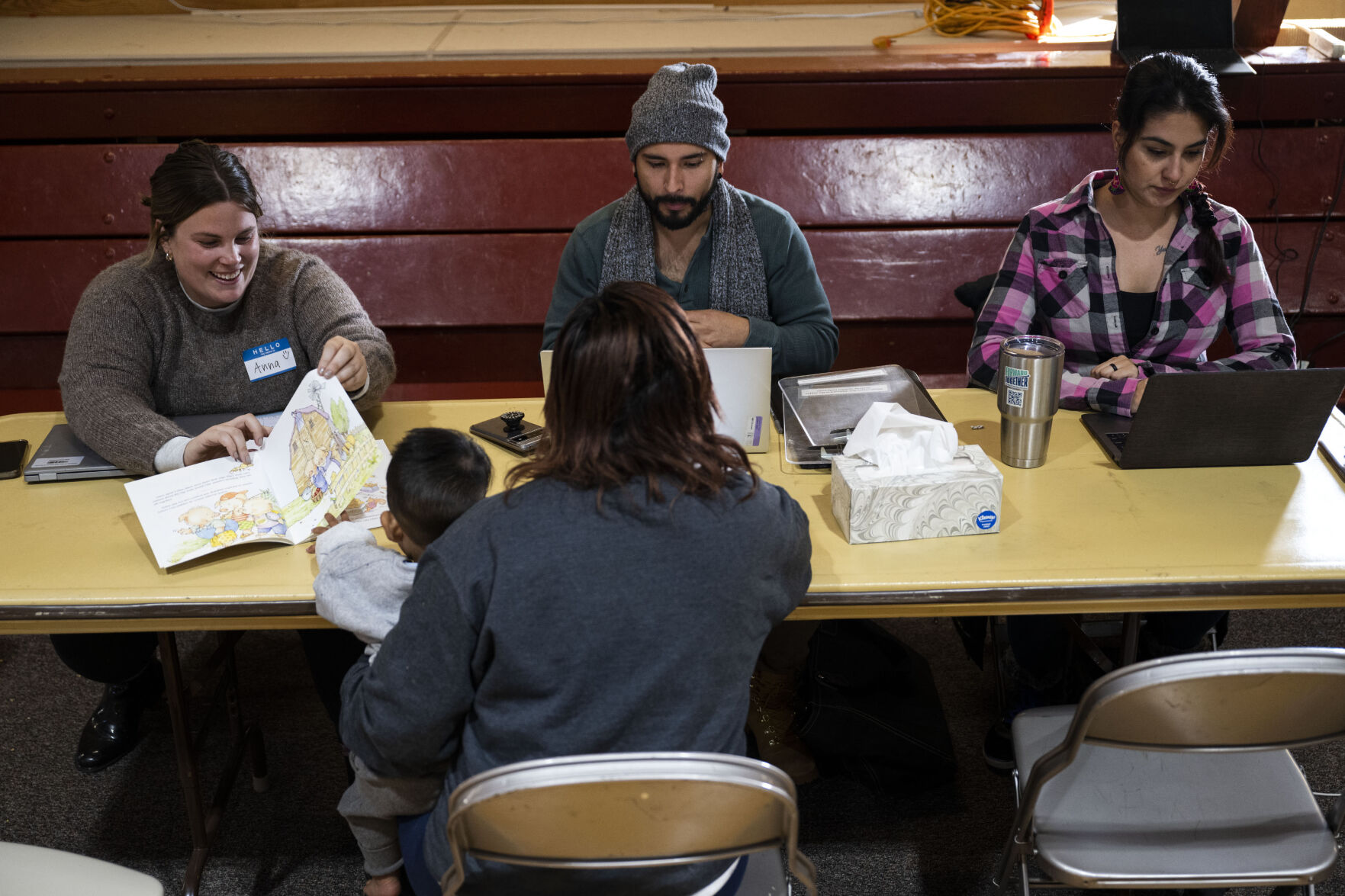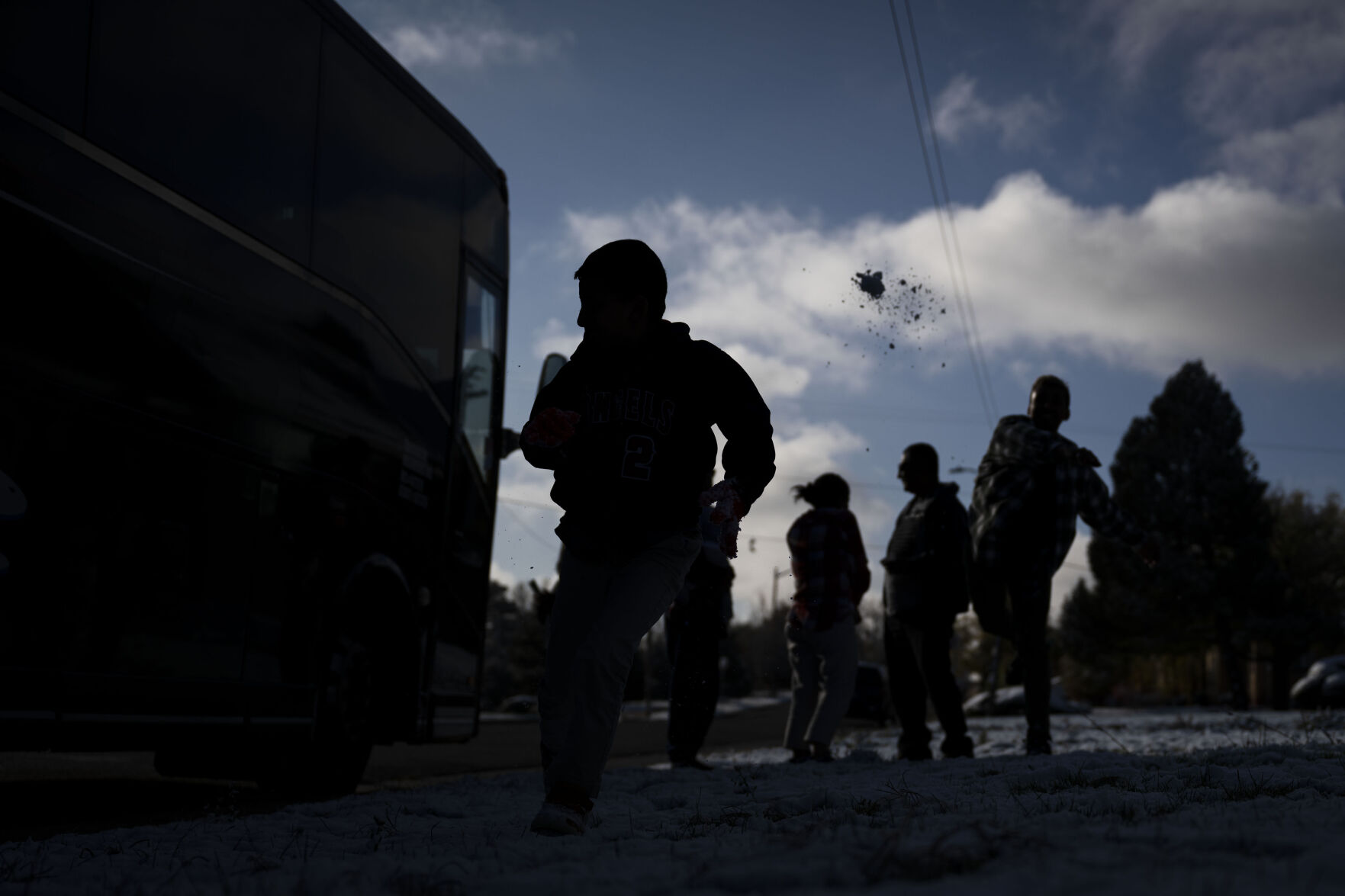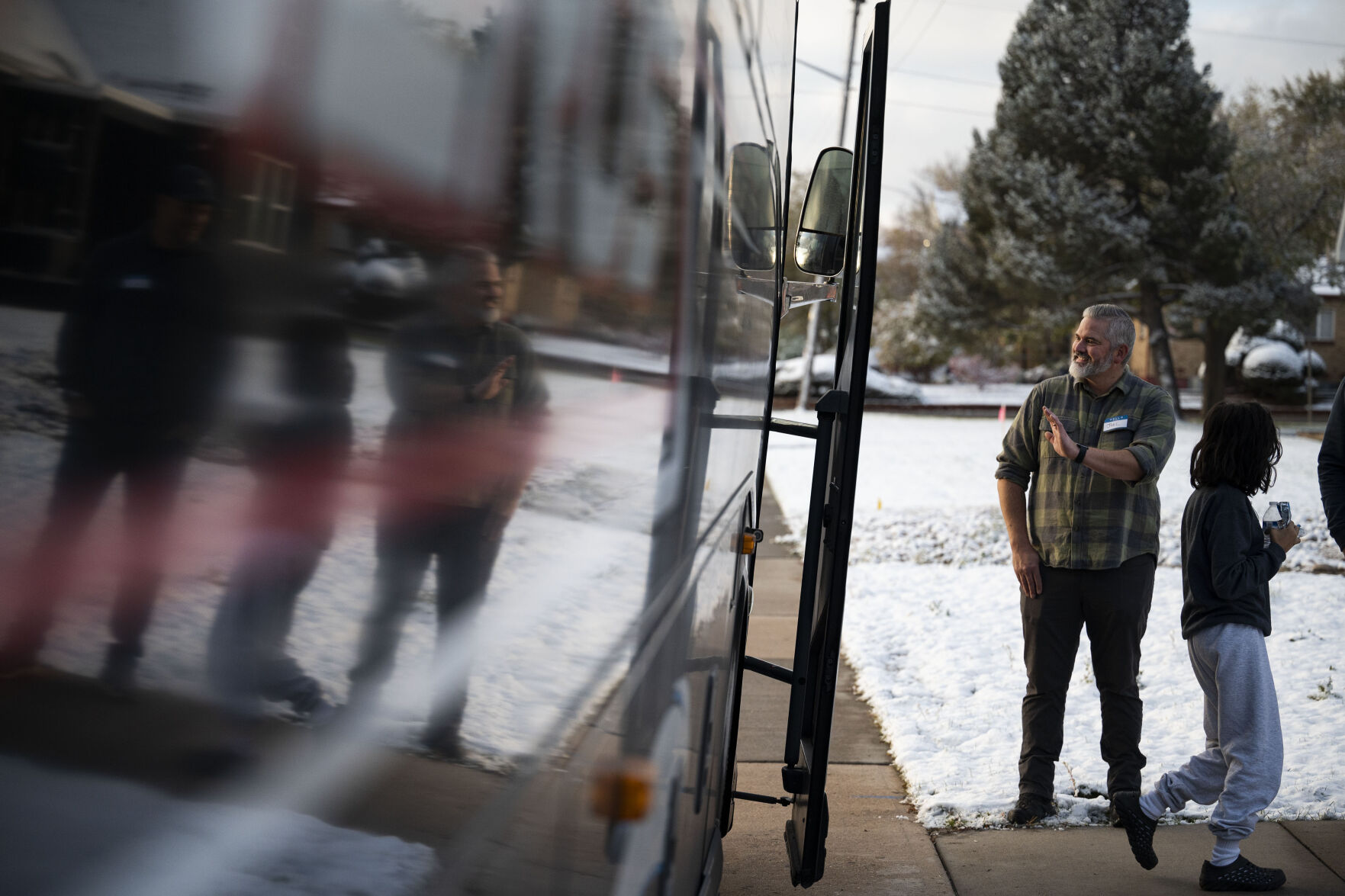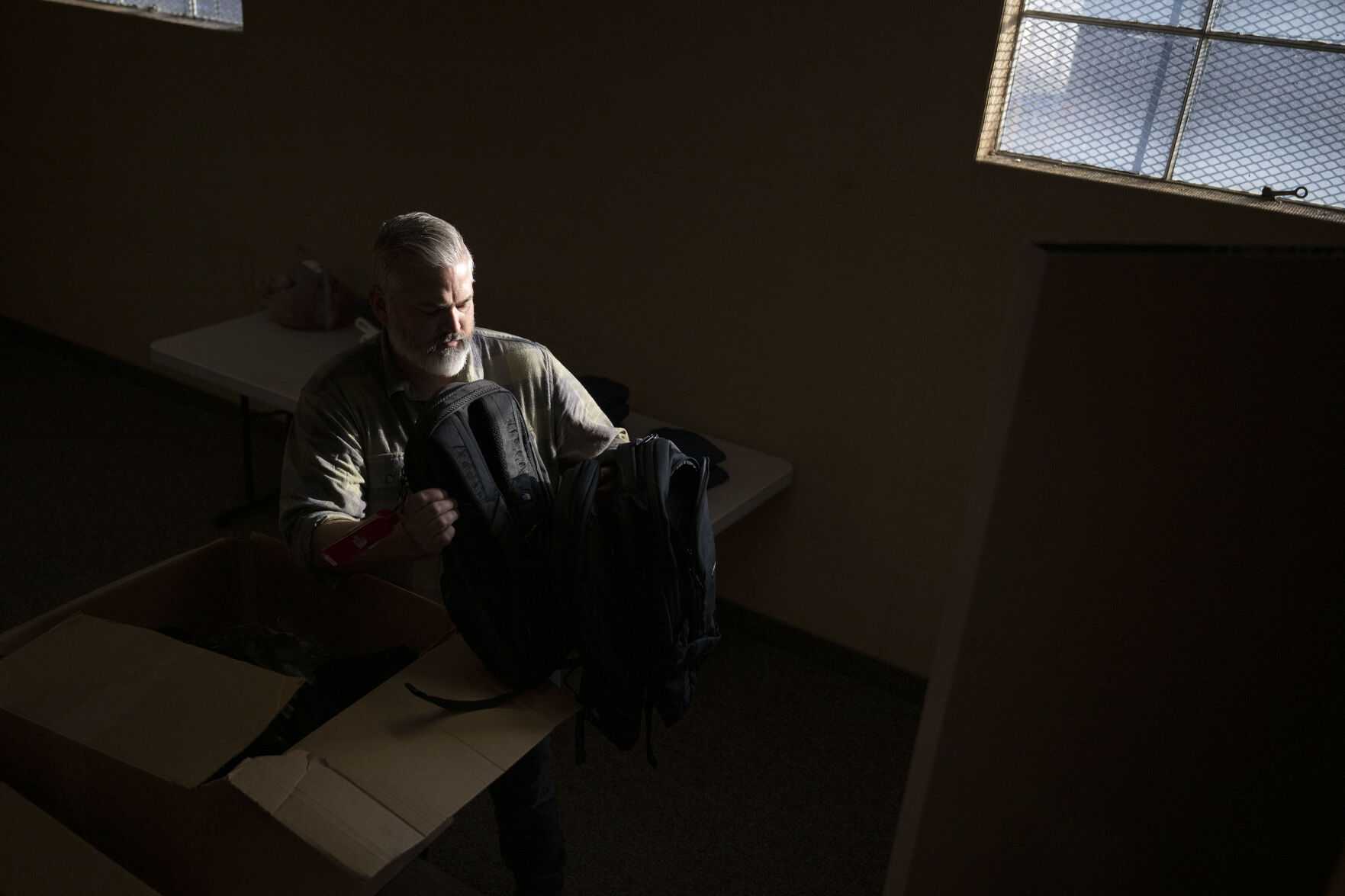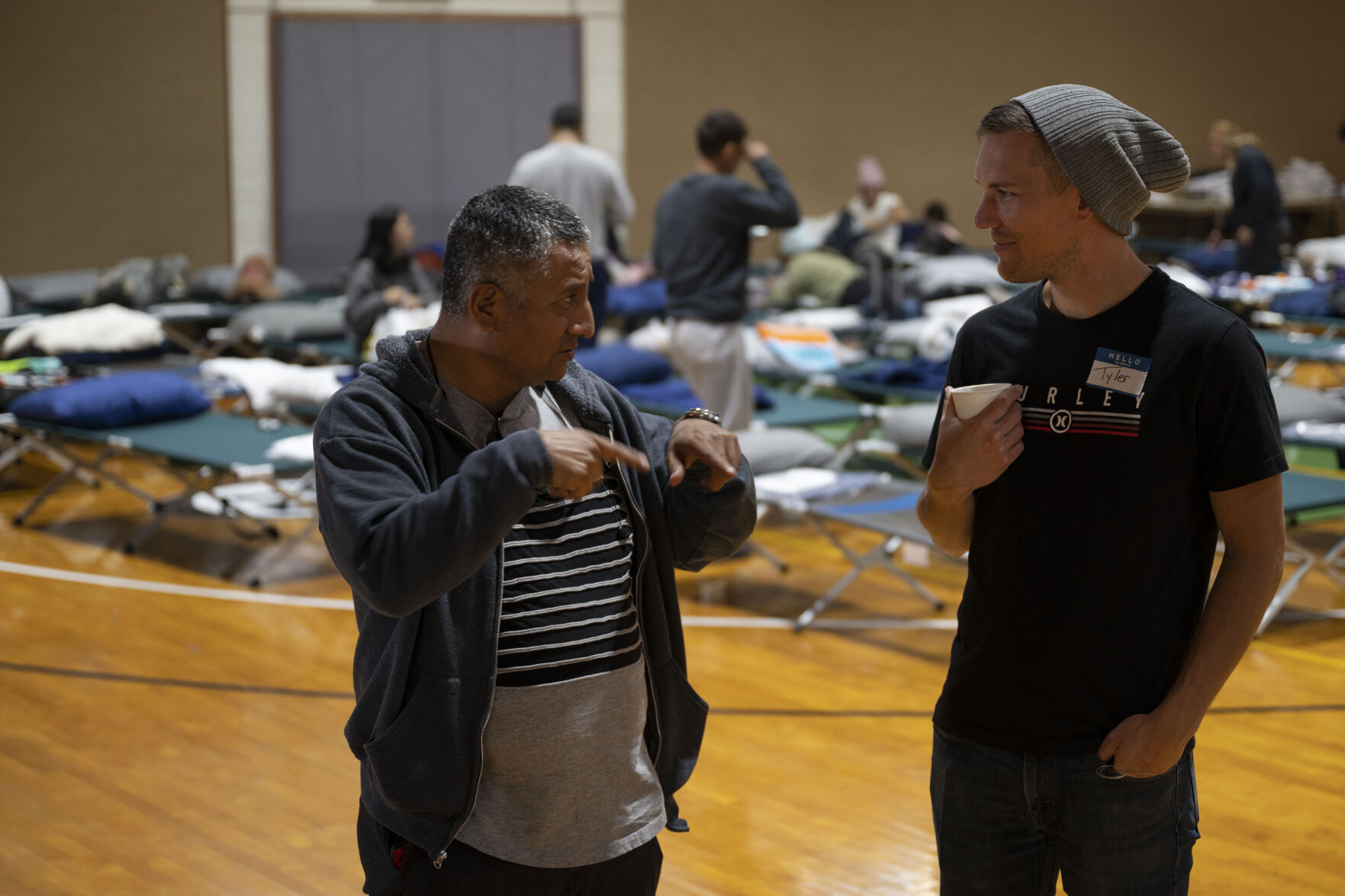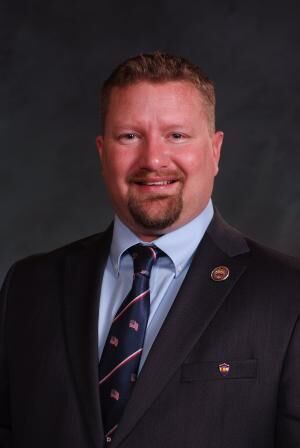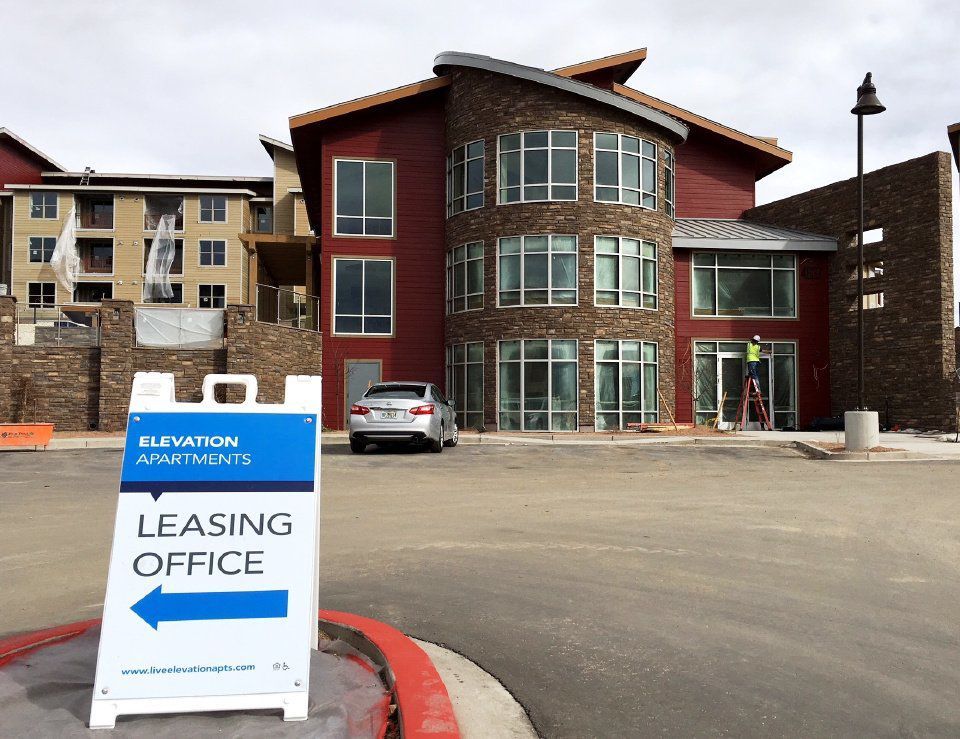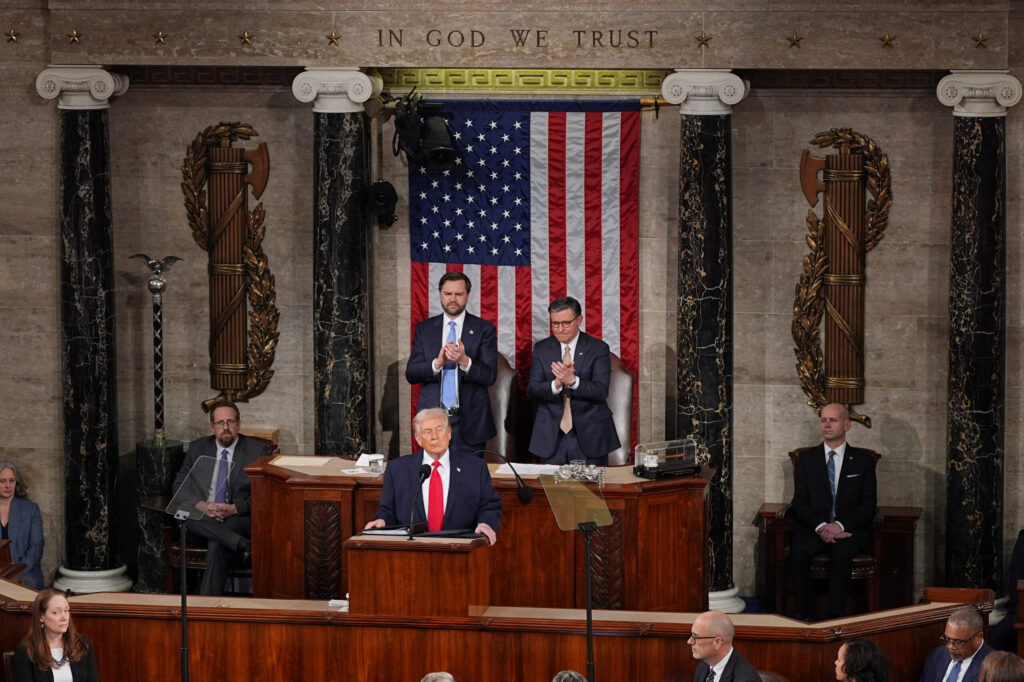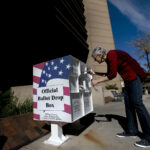Bus load of desperate asylum-seekers land in Denver; first influx in 3 years
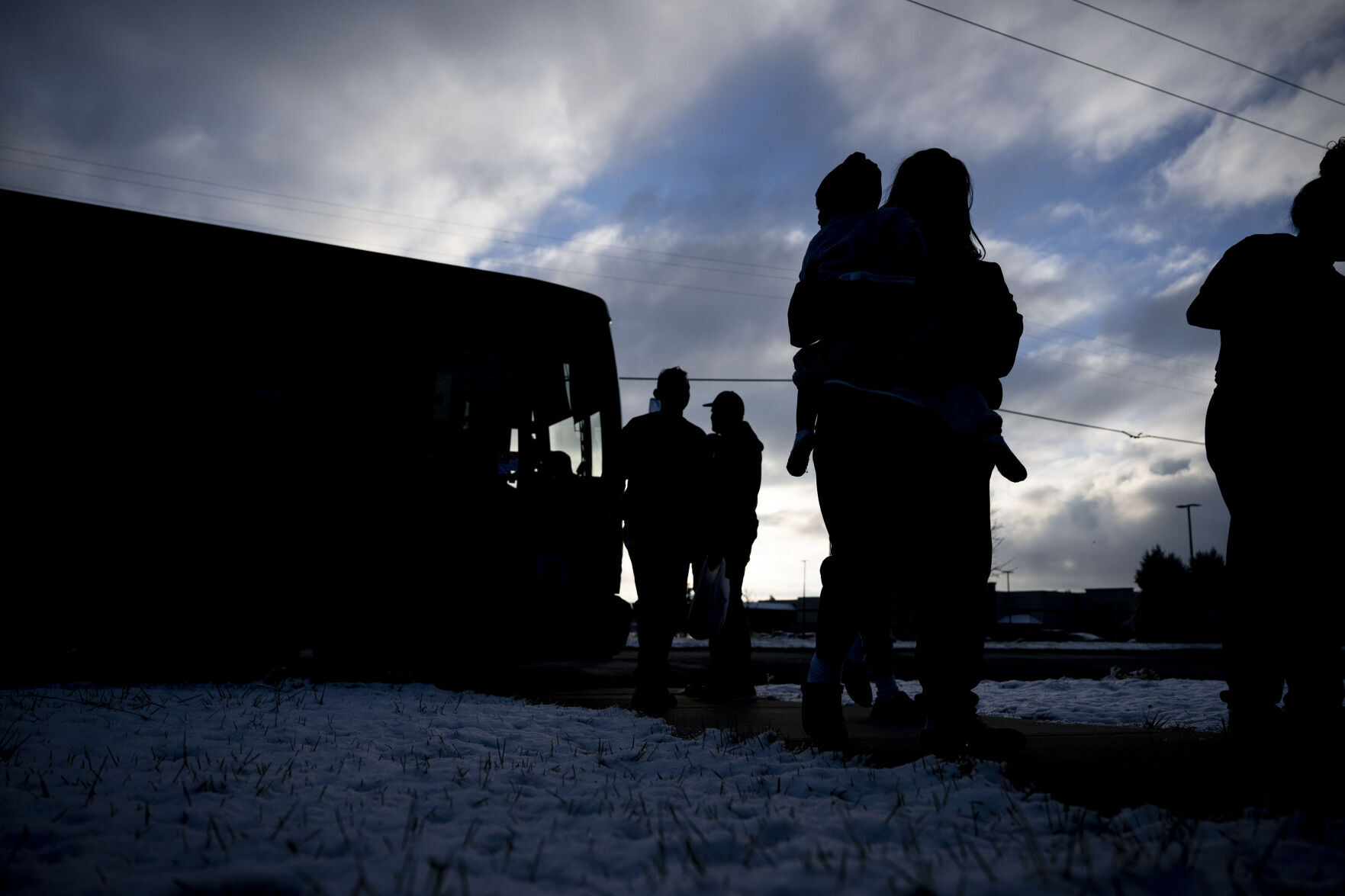
Outside a Denver shelter Friday, whose location is being kept secret for safety’s sake, migrant children in sweats and borrowed gloves pelted one another with snowballs. Just hours into a cold place called Colorado they figured out how to build a snowman and decorated its head with a frozen autumn leaf.
The busload of youths and their families arrived in Denver at 8 a.m. Friday after a 12-hour drive from El Paso, Texas’ crowded Annunciation House shelter. They carried small plastic bags with all their possessions.
These migrants seeking asylum crossed the Mexican-American border, turned themselves into the U.S. Customs and Border Patrol. The families are from Central and South American countries and most have relatives or friends in places like Burbank, California; Trenton, New Jersey and Miami waiting to sponsor them. For those migrants, Denver is a weekend transition point.
On the wood floor of an old gym converted into temporary sleeping and eating quarters, two-year old Mateo played with a plastic truck he found in a box.
“If he had a rock, he’d play with a rock. He has a truck, so he’s playing with the truck,” said his mom, Milena, 23, of Minagua, Nicaragua through a translator.
After her husband, Manual, lost his job as a university computer tech, she lost her nursing scholarship. Violence increased from local law enforcement. They decided to leave.
The Denver Gazette agreed not to disclose the family’s last name for security reasons.
It took 18 days to get to this point, including a 12-hour ride on a fishing boat and days spent with the three of them sharing a rented mattress under a tent in San Pedro.
“I am the only child of my parents and Mateo is the only grandchild,” Milena said. “My mother had a hard time letting us go.”
The 23-year-old, Mateo and Manual, 36, will be in Florida by Saturday night, sponsored by uncles and aunts who live there. Most of the “Denver Fifty” will be on their way by Sunday morning.
A group of asylum-seeking migrants was bussed to Denver early Friday morning. The group consisted of individuals from Cuba, Colombia, Ecuador and Nicaragua.
NOWHERE TO GO
But other migrants who have nowhere to go will start the asylum process here in Denver with notice to appear and may choose to settle in Colorado. About six families, 23 people total including five babies, will look to stay in Colorado.
The non-profit Colorado Hosting Asylum Network steps in to provide these families housing for one-to-three months
“This busload is the first formal arrival that we’ve had this year but we’ve been seeing people arrive on their own since June,” said Denise Chang, network founder and executive director.
Sometimes migrants who cross the border end up in Colorado simply because Denver popped up on the internet as a sanctuary city when a Customs and Border Patrol agent did a google search, Chang said.
“They then add an address to these migrants’ papers that doesn’t correspond to a shelter,” she said. “Sometimes it’s an office building or a nursing home.”
Families have been known to wander around a city confused and homeless.
But Denver is known for being welcoming to migrants. During the 2019 humanitarian crisis, the city accepted three buses and created 72-hour shelters for people.
“Denver and Aurora are known as refugee cities,” Andrea Loya, executive director of Casa de Paz, said. “And as a state, we are attractive to immigrant communities.”
This year’s historic migration has been driven by soaring numbers of people crossing from outside Mexico and Central America.
Of the Denver group, half were children. They are from Columbia, Cuba, Nicaragua and Ecuador, where unrest has been especially violent recently and gangs run the streets.
“That’s what boggles my mind, these people have traveled 3,000 miles. It’s dizzying,” said Dave Neuhausel, pastor of mobilization for the Denver Community Church and director of Project Renew. “Their journey is unbelievable. Denver is actually the softest landing they’ve had.”
NOT A POLITICAL STUNT
Friday’s busload was not a political stunt by unhappy state leaders. It was a planned event which took a month to coordinate. A coalition of organizations helped provide the shelter including Casa de Paz, the City of Denver’s Office of Emergency Management, Denver Community Church and the American Friends Service Committee.
Weekly meetings ensured a smooth process.
“The city and county have been proactive to ensure large groups of people are not left on the street corners,” Mikayla Ortega, spokesperson for the Office of Emergency Management, said. “That would create a humanitarian crisis, so ensuring they have the opportunity to land in a safe place and connect to resources was our goal.”
Local non-profit organizations are hoping for funds from the Federal Emergency Management Agency’s (FEMA) Emergency Food and Shelter program to help with the influx of migrants they’ve been having, and will likely to continue to see. For the fiscal year 2022, which ended last month, $150 million was appropriated to organizations providing humanitarian assistance to individuals and families.
GYM LIFE
In the old gym Friday morning, weary parents and children of all ages dressed in sweats and orange clogs, sandals – most with socks – and knit beanies had their first Colorado meal. They ate around tables placed in a makeshift dining area just below a basketball net. On the other side of the gym, under what was once an opposing team’s net, 50 cots with blankets dotted the arc where athletes throw three-pointers.
One curious toddler walked across the gym floor toward the front door with a banana in his hand, looking over his shoulder to see his parents were watching before his dad caught up to him and wiped his face.
When Milena and her family finally reached Juarez on foot, they crossed into El Paso. They could see U.S. Customs and Border Patrol agents in the distance and waited for them to find them so that they could turn themselves in.
“My biggest fear was that after what we went through, we would be turned around at the border,” she said as Mateo pushed his truck across the wooden basketball court. “I would like to say thank you so much for receiving us the minute we arrived in the United States. We are all human beings and that has been recognized.”
